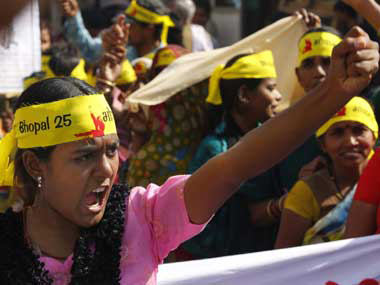 What offers hope for the future are the models of care that have developed in the wake of Bhopal. One is the Sambhavana Clinic that provides healing, deep caring and palliative care with minimal resources. Treatment is free and uses traditional Indian (ayurvedic) medicine as well as western medicine. Healing gardens based on ayurvedic principles and a beautiful care centre have been developed. Patients become actively involved in their own treatment and are encouraged to take medicinal plants home. The Chingari Rehabilitation Centre was founded by prize money made to a survivor of the gas leak. The centre provides rehabilitation and therapy for victims and in particular, the children of survivors. Both organisations focus on healing the spirit as well as the body.
What offers hope for the future are the models of care that have developed in the wake of Bhopal. One is the Sambhavana Clinic that provides healing, deep caring and palliative care with minimal resources. Treatment is free and uses traditional Indian (ayurvedic) medicine as well as western medicine. Healing gardens based on ayurvedic principles and a beautiful care centre have been developed. Patients become actively involved in their own treatment and are encouraged to take medicinal plants home. The Chingari Rehabilitation Centre was founded by prize money made to a survivor of the gas leak. The centre provides rehabilitation and therapy for victims and in particular, the children of survivors. Both organisations focus on healing the spirit as well as the body.
A model of care has emerged that integrates traditional (ancient) systems of medicine with western medicine; recognises that to heal a wounded person, care is needed on every level; that the spiritual is as important as the physical and psychological. Many people believe that such a model would be universally beneficial and is the kind of healing to which the future should aspire. Bhopal has given us this gift. It is not a requiem. Its people are survivors, generous in their grief, formidable in their determination.
Genesis of a new resistance, Bhopal survivors are an affirmation and anthem of what is indomitable in the human spirit.
Jaya Graves
Full article: Southern Voices


